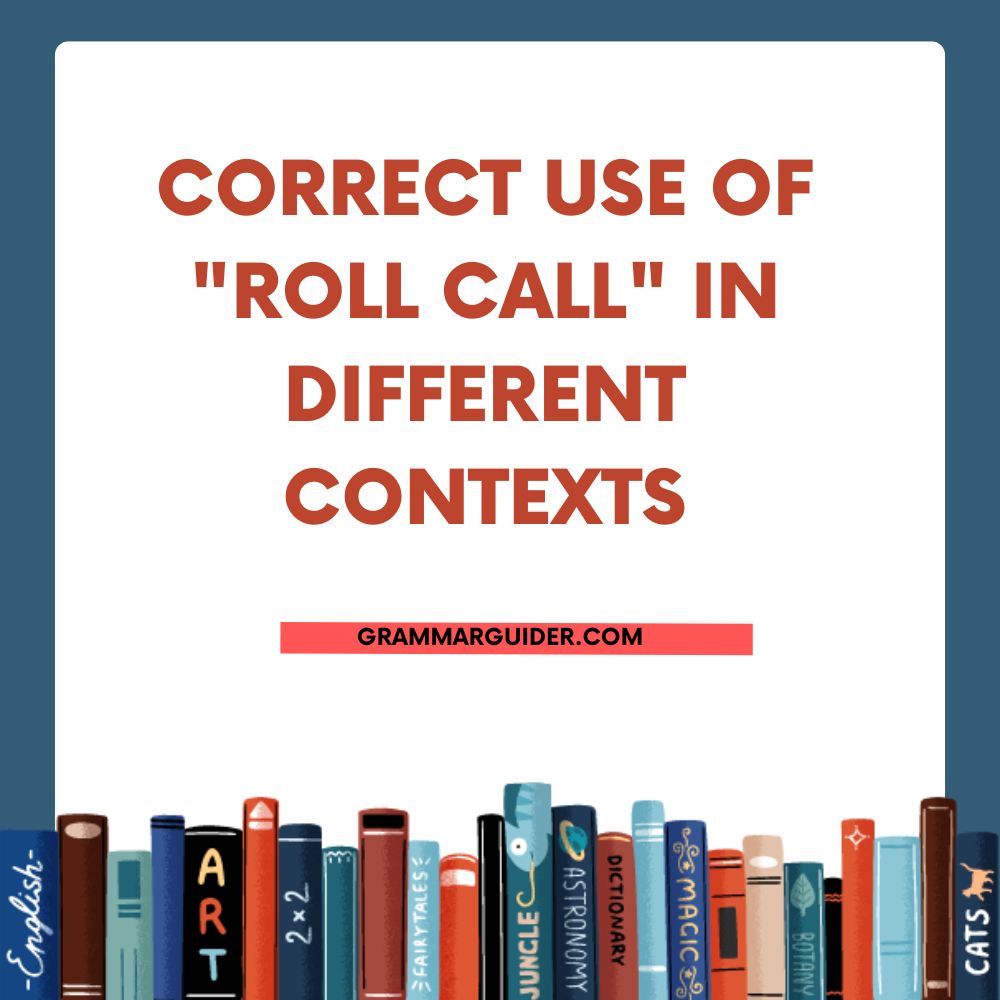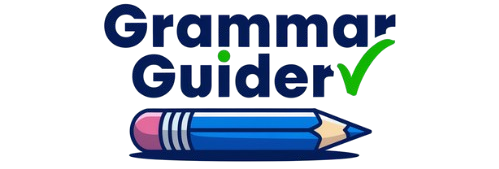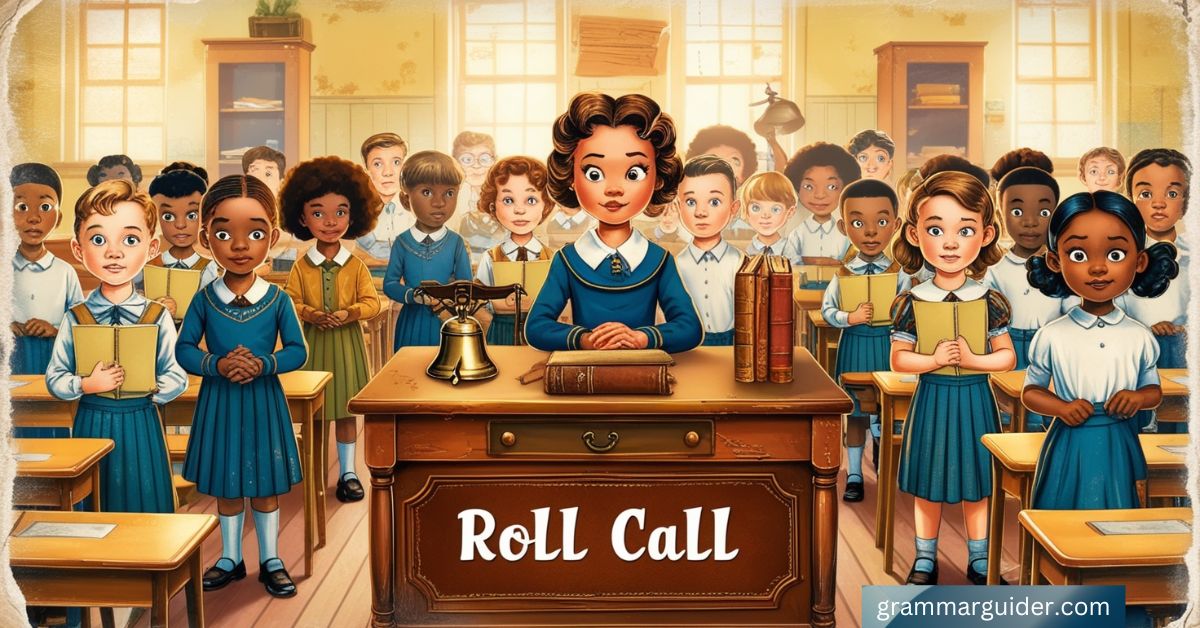The phrase “role call” and “roll call” are often used interchangeably in casual conversation, but is one of them actually correct? Understanding the difference between these terms and when to use them correctly is essential, particularly in formal writing or communication.
This article will explore the distinctions between “role call” and “roll call,” give examples of when each is used, and offer insights into which term is grammatically and contextually appropriate.
Understanding the Terms
Roll Call
“Roll call” is the correct and most widely accepted term in the English language when referring to the act of calling out names to check attendance.
It originated from the practice of calling a roll of names, especially in a classroom, meeting, or any gathering to confirm everyone’s presence.
The roll is essentially a list of names, and during a roll call, the list is read aloud to ensure that all individuals are accounted for.
Role Call
On the other hand, “role call” is not technically correct in the context of attendance. However, it can sometimes be mistakenly used when referring to a list of responsibilities or functions assigned to individuals.
Role pertains to the function or part an individual plays in a particular situation, like the role someone might have in a team or project.
So, when people mistakenly use “role call,” they might be thinking about the different roles people take on in a team, but this isn’t the right term for checking attendance.
Is It Role or Roll Call?
When you are trying to decide whether it’s role or roll call, you should always use roll call when referring to checking attendance. Use “role” only when you are discussing someone’s function or responsibility in a particular context.
Correct Use of “Roll Call” in Different Contexts

1. Classroom Setting
In a classroom setting, roll call is a routine process where the teacher checks attendance. For instance:
Good morning, class! Let’s begin our roll call.
John Smith?
Here.
Alice Johnson?
Present.
In this example, “roll call” is used correctly to refer to the act of calling the names from a list to confirm the students’ presence. The attendance roll is the list that the teacher uses to keep track of students.
2. Workplace Scenario
Roll call can also apply to professional environments, such as during team meetings. Imagine an HR manager conducting a virtual meeting:
Hello, team. Before we start today’s session, let’s have a roll call to make sure everyone is here.
Sarah Thompson?
Here.
David Green?
Present.
In this situation, the term roll call is used to ensure everyone has joined the meeting. The term is appropriate as it denotes a list of individuals whose names need to be checked off.
3. Event or Conference
At a large event or conference, roll call can be used at the beginning of the session to ensure all participants are accounted for. For instance, the event organizer might say:
We will begin the conference in 10 minutes. Please respond to the roll call so we can verify attendance.
Peter Williams?
Here.
Angela Cooper?
Present.
This scenario also uses roll call correctly. The focus here is on confirming who is attending the event, and the term roll call attendance would be an accurate way to refer to the process.
Scenarios Where “Role Call” Might Appear
While role call is not the correct term for checking attendance, it could be mistakenly used when people are referring to the assignment of roles in a project or team.
Let’s explore an example where “role call” might make sense, though the context is quite different from attendance:
Today, we are discussing each team member’s responsibilities in the upcoming project. Let’s begin with the role call.
John, your role will be the project manager.
Alice, you will handle communications.
Sarah, you’re in charge of the design phase.
Here, the term “role call” is used to introduce the allocation of roles or responsibilities to team members. Although it’s still not the most precise way to describe this activity, it can occasionally pop up in informal conversations.
Roll Call vs. Role Call in Writing
When writing formal communication, you should aim to avoid using “role call” when discussing attendance. Stick with “roll call” in professional or educational contexts.
Here’s a brief guide for choosing the correct term:
| Scenario | Correct Term | Example Usage |
|---|---|---|
| Checking attendance | Roll call | Let’s begin the roll call to confirm who is present. |
| Assigning responsibilities | Role call | We will discuss the role assignments during the meeting. |
Common Confusion Why Do People Mix Up “Role” and “Roll”?
The confusion between “role” and “roll” largely stems from their similar sounds and meanings in different contexts. However, it is important to understand that role refers to someone’s responsibility or function in a specific setting, while roll refers to a list of names or items that need to be checked or called out.
Here’s a simple breakdown:
- Roll Call: The process of calling names for attendance.
- Role: A person’s function or duty in a particular scenario.
Understanding these distinctions can help avoid misunderstandings in both writing and speech.
Email Example: Roll Call in a Professional Setting
Let’s take a look at an email example where roll call is used correctly. Suppose an event organizer is preparing for a company-wide meeting.
Subject: Attendance Roll Call for Tomorrow’s Meeting
Dear Team,
I hope you’re all doing well. As we prepare for tomorrow’s important meeting, please take a moment to confirm your attendance. We will begin promptly at 10:00 AM, and I will conduct a roll call to ensure everyone is present.
Please respond to this email with a quick confirmation of your availability. If you are unable to attend, please let me know as soon as possible.
Looking forward to our discussion tomorrow.
Best regards,
Laura Hall
Event Coordinator
In this email, the term roll call is used correctly. The attendance roll is the list the organizer will use to check who is present.
Email Example: Role Call in a Project Context
Now, let’s look at a situation where the term “role call” could be used to assign responsibilities within a team.
Subject: Role Assignments for Upcoming Project
Dear Team,
I hope you’re all excited about our new project! In our next meeting, we’ll go over the detailed project plan, but I wanted to start by sharing the initial role call for each team member.
- John – Project Manager
- Sarah – Design Lead
- David – Marketing Specialist
If there are any issues with your role or if you’d prefer a different responsibility, please let me know before the meeting.
Looking forward to collaborating on this exciting new initiative!
Best regards,
Mike Roberts
Project Lead
In this case, “role call” is used to introduce role assignments for team members in a project. While this is a common mistake, it’s clear that the focus here is not attendance but the allocation of tasks.
Conclusion: Role or Roll Call?
When in doubt, always go with roll call for attendance checks. It’s the widely accepted and grammatically correct choice in this context. Role call is often mistakenly used but doesn’t apply when you’re referring to attendance. Understanding this distinction can help you avoid confusion in both professional and personal communications.
So, next time you need to confirm who’s present at a meeting or event, remember: roll call is the right term to use!

Harley Rose is a seasoned expert in English grammar and writing tips, blending years of knowledge and a love for language into her work. With a sharp eye for detail and a talent for making grammar accessible, Harley shares practical insights that help readers write with precision and flair. Her content is ideal for anyone looking to strengthen their writing skills and express themselves with confidence.

